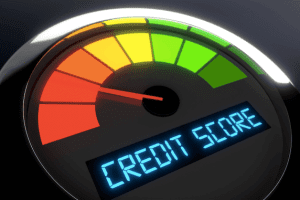A credit score is a numerical rating that determines a consumers creditworthiness. The numbers typically range from 300 to 850, with a higher score representing a more trustworthy borrower.
Credit scores are of the utmost significance since they indicate how reliable you are in your financial dealings. This guide will discuss in more detail the nature of credit scores, how they work and why they are extremely important.
What Is A Credit Score?
A credit score predicts a customers’ credit behavior, such as how likely they are to pay a loan back on time, based on information from their credit report. Credit scores are one of the first things that many lenders and credit providers will assess for any customer before approving or rejecting a loan or credit agreement.
Whether you need to borrow a $255 payday loan or want to get a mortgage or a car loan agreement, your credit score will be checked by lenders to assess your creditworthiness to determine what the likelihood is you will repay back your loan on time, miss the scheduled payments or default.
How Are Credit Scores Calculated?
USA.gov revealed that credit companies determine a consumers credit score from the following information found in customers credit reports:
- Payment history
- Outstanding balances i.e. unpaid debt
- Length of credit history
- The number and type of loan accounts
- The number of new applications open for credit accounts
- Types of credit accounts e.g. credit cards, car loans or mortgages
Other factors that are often considered include how much of your available credit you are using, and whether you have ever had a debt collector, a foreclosure or had to declare bankruptcy.
It is important to note that you may have multiple different credit scores. Credit scores vary as different companies and lenders use their own credit scoring systems which have different mathematical formulas.
Why Is A Credit Score An Important Rating?
Credit scores provide an important rating since companies use credit scores to make decisions on whether to offer you financial products such as mortgages, credit cards, auto loans and other credit products, as well as for tenant screenings and insurance.
Credit scores are also used to determine the interest rate and credit limit you will receive. A customer with a high credit rating is considered a low-risk borrower and so they will usually have more options. For instance it will be easier to qualify for a loan and you may be offered a more competitive interest rate and less fees which could save you vast amounts of money or a better loan term from different lenders which could make the borrowing process much easier for you. Fewer lenders will be willing to lend with favorable terms to those with a poor credit score.
A bad credit score could also lead to you being rejected for loans which can be difficult if you need to borrow money urgently. A credit score is therefore extremely important since it determines your financial offerings.
Why Do I Have A Bad Credit Score?
If you have a poor credit rating, it is worth understanding why this is the case so that you can work on improving your score in the future.
A potential reason that could be causing you to have bad credit is if you have made multiple application for credit, loans or other financial products. This could leave a negative footprint on your credit file since it would look like you are in a financial difficulty and may be low on funds. The lender may assume from so many applications so close together that the borrower is being repeatedly rejected which may put them off, leading them to either decline your application or offer you extremely high interest rates, making the problem worse for you.
Another reason you may have a poor credit score is from missing repayments. Perhaps you chose a credit card plan with high-interest rates that require repayments in a short space of time. If you failed to make the repayments, then your score could decrease and gradually lead to a very poor score being recorded since you essentially would have breached your contract with the lender. In turn, future lenders would assume you are less creditworthy and likely to repay your loans than someone with a very good credit score.
Conversely, you may have a low credit score from not having a credit history. Whilst this may seem strange, it is because if a lender has no prior information on how well you can meet repayments, then they will not be able to tell if you are reliable borrower or not. Likewise, if you are not on the voters register then you may have a lower score since since it will be harder for lenders to confirm your identity and home address, making them less likely to be keen to loan you money.
How Can I Improve My Credit Score?
There are many options you can consider if you are looking to improve your credit score and show that you will be a reliable candidate when applying for credit or loans. A relatively easy way to start the process is adding yourself to the voter register if you have not done so already as this will help to confirm your identity and home address.
You should then focus on paying any outstanding bills as quickly as possible if you have any and to create a repayment plan that will help you eliminate any debts. Check that you have not been overcharged and stay in touch with your lenders to keep them updated on your progress.
Whilst it may take a few months to get back on track, getting into a good routine for paying off your bills will stand you in good stead. Once this is done you could then start looking at more ways to build your credit profile, for instance by only spending a fraction of your credit card limit and repaying it on time. This should help to increase you score which you can then check again via many different online platforms, which should also offer useful information, such as what is benefiting or damaging your score.
Was this article helpful?
Justine is a full-time writer with lots of expertise and a wealth of experience in the financial world. In particular, she specializes in household income and consumer finance across the United States. Follow her articles for useful advice and top tips, guides on how to save money and lots more.


